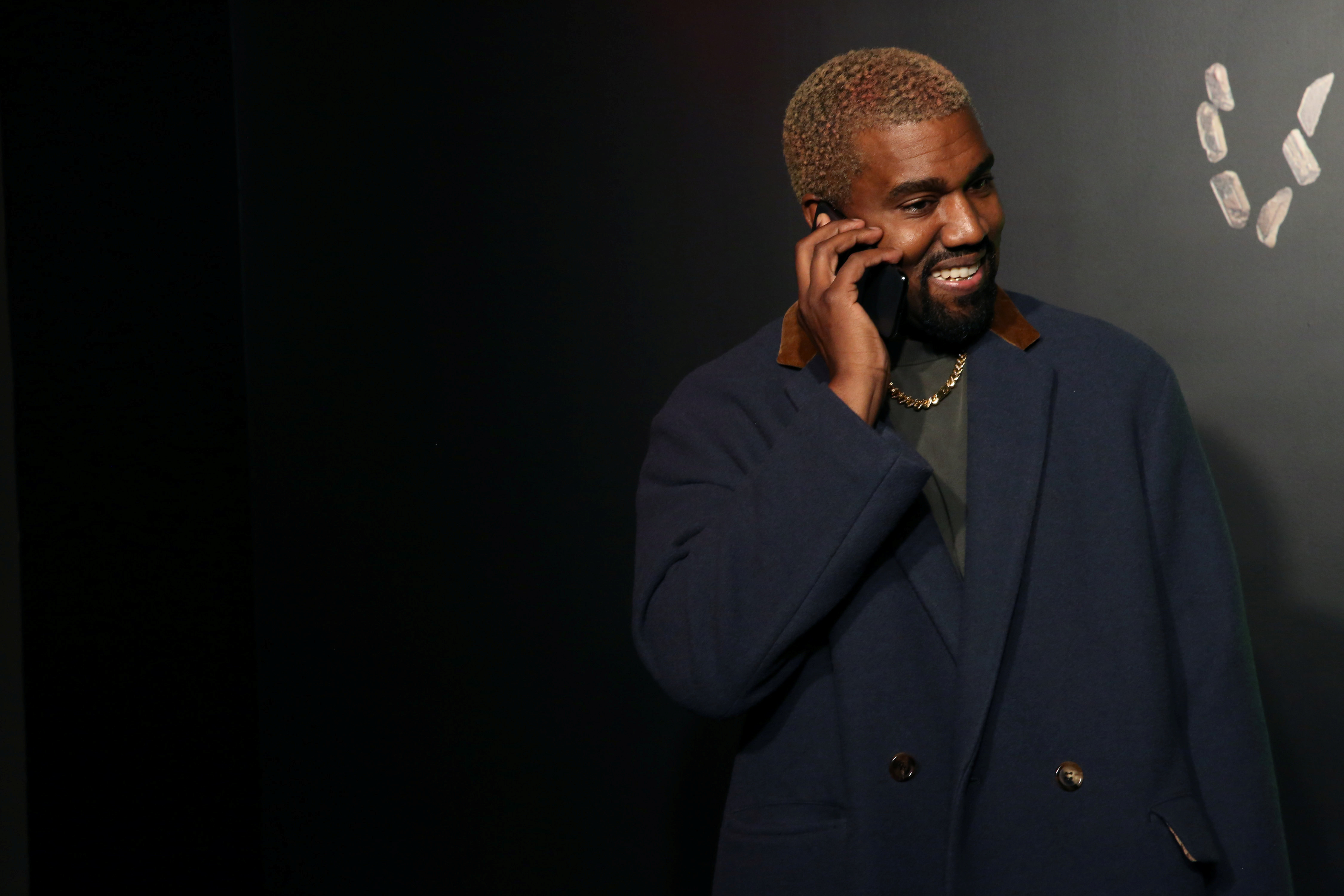"We all have a little bit of Ye in us” – Kanye West and the digital information crisis

"We all have a little bit of Ye in us: choosing whom we accept information from based on how the message and messenger make us feel, wrestling to fit information into a matrix that helps us understand ourselves and feel understood."
Which person best encapsulates our roles as victims and participants in the digital information crisis? Who exemplifies our struggle to find quality, nuanced journalism and information that allows us to “think freely”. And who can best describe the digital information crisis we are currently experiencing?
Journalist fellow Caithlin Mercer, now back to her day job as managing editor of Yahoo! UK, argues in her paper Kanye West and the Digital Information Matrix, that the hip hop artist's experience may provide some of the answers.
Kanye West, or 'Ye', walked through a social media firestorm after he came out in support the right-wing commentator Candace Owens, one of four people he followed on Twitter, and suggested on TMZ that slavery had been a choice for African Americans. The outcry intensified after he praised Donald Trump during a visit to the White House, while wearing a Make America Great Again hat.
Mercer takes West’s experience of social media to examine how truth and its distortion are central to many cultures and myths going back millennia.
And in even more recent decades, such as the 1880s, 1920s and 1960s/70s, the phenomenon of ‘truth decay’, coined by Jennifer Kavanagh and Michal D. Rich, emerged which saw the blurring of fact and opinion, disagreement about facts and their interpretation, and declining trust in formerly respected sources of factual information. Mercer writes: “All three were decades of uncertainty marked by an evolution of journalistic practice in response to political and economic crises, and changing business demands. Today is no different.”
Mercer brings us to our present struggle with disinformation, the striving for a balanced, nuanced media, and to Kanye West and his desire for “free thinking”. The paper considers how Kanye West, “grappling with his identity and creative process following a new diagnosis of bipolar disorder,” would find himself in a filter bubble in his attempts to ‘think freely’.
Mercer writes: “Ye, like all of us, is programmed to seek out information that he agrees with. That information is more enjoyable to consume, so we consume more of it. The more we consume, the more convinced we become and the more uncomfortable and unpleasant it is to be confronted by an alternative version. In this way, a person determined to embrace ‘free thinking’ can end up promoting rhetoric that seem to be the antithesis of free thought.”
Kayne West is not just a private individual grappling with the digital information crisis but a hugely influential figure in his own right, one who has embraced our ability to become broadcasters to the world. “Journalists are competing for attention for their dull truths not just with Kanye West’s Twitter feed, but with literally billions of daily content creators who have absolutely no incentive for imparting nuance or plain truths”, Mercer writes
Furthermore, coverage of him spills into the realm of entertainment journalism which presents its own challenges. Mercer, in one of her ‘Ye tests’ which she applies to the standard interventions offered to combat disinformation, asks: “Do we need to rethink the way we do entertainment journalism, given that entertainment journalists must now hold a new kind of power to account: the celebrity influencer? Are there new strategies or technologies that can be adopted to appeal to news avoiders?”



